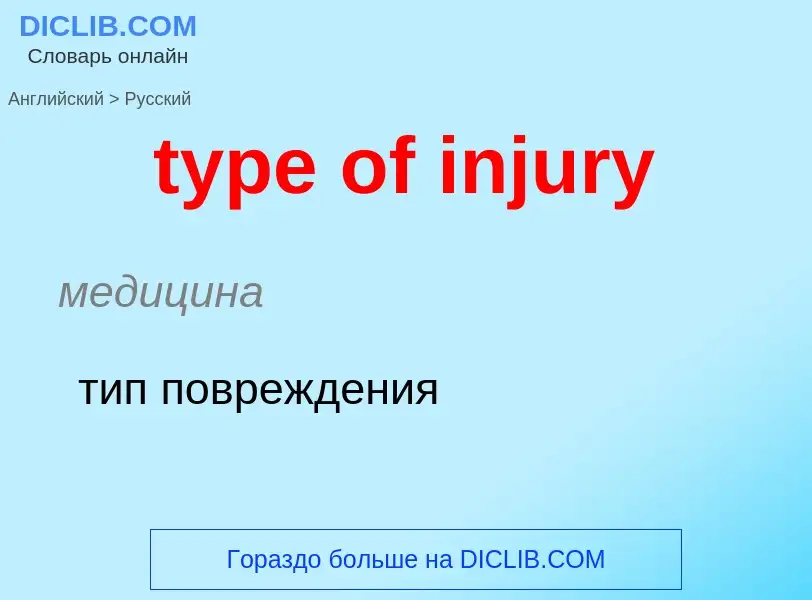Traducción y análisis de palabras por inteligencia artificial ChatGPT
En esta página puede obtener un análisis detallado de una palabra o frase, producido utilizando la mejor tecnología de inteligencia artificial hasta la fecha:
- cómo se usa la palabra
- frecuencia de uso
- se utiliza con más frecuencia en el habla oral o escrita
- opciones de traducción
- ejemplos de uso (varias frases con traducción)
- etimología
type of injury - traducción al ruso
медицина
тип повреждения
общая лексика
лектотип
общая лексика
клонотип
Definición
.
Wikipedia
Stress hyperglycemia (also called stress diabetes or diabetes of injury) is a medical term referring to transient elevation of the blood glucose due to the stress of illness. It usually resolves spontaneously, but must be distinguished from various forms of diabetes mellitus.
It is often discovered when routine blood chemistry measurements in an ill patient reveal an elevated blood glucose. Blood glucose can be assessed either by a bedside ‘fingerstick’ glucose meter or plasma glucose as performed in a laboratory (the latter being more efficacious). A retrospective cohort study by the Mayo Clinic held that bedside glucometry was a reliable estimate of plasma glucose with a mean difference of 7.9 mg/dL, but still may not coincide with every individual. The glucose is typically in the range of 140–300 mg/dl (7.8-16.7 mM) but occasionally can exceed 500 mg/dl (28 mM), especially if amplified by drugs or intravenous glucose. The blood glucose usually returns to normal within hours unless predisposing drugs and intravenous glucose are continued.

.jpg?width=200)
![Linnaeus]], is the type species for the genus ''[[Bufo]]'' Linnaeus]], is the type species for the genus ''[[Bufo]]''](https://commons.wikimedia.org/wiki/Special:FilePath/Bufo bufo (Marek Szczepanek).jpg?width=200)
![dorsal]] and 2) ventral aspect of holotype,<br>3) dorsal and 4) ventral aspect of paratype dorsal]] and 2) ventral aspect of holotype,<br>3) dorsal and 4) ventral aspect of paratype](https://commons.wikimedia.org/wiki/Special:FilePath/JamidesEliotiMUpUnAC1.jpg?width=200)
![Type illustration of ''[[Mormopterus acetabulosus]]'' Type illustration of ''[[Mormopterus acetabulosus]]''](https://commons.wikimedia.org/wiki/Special:FilePath/Mormopterus acetabulosus type illustration.jpg?width=200)
